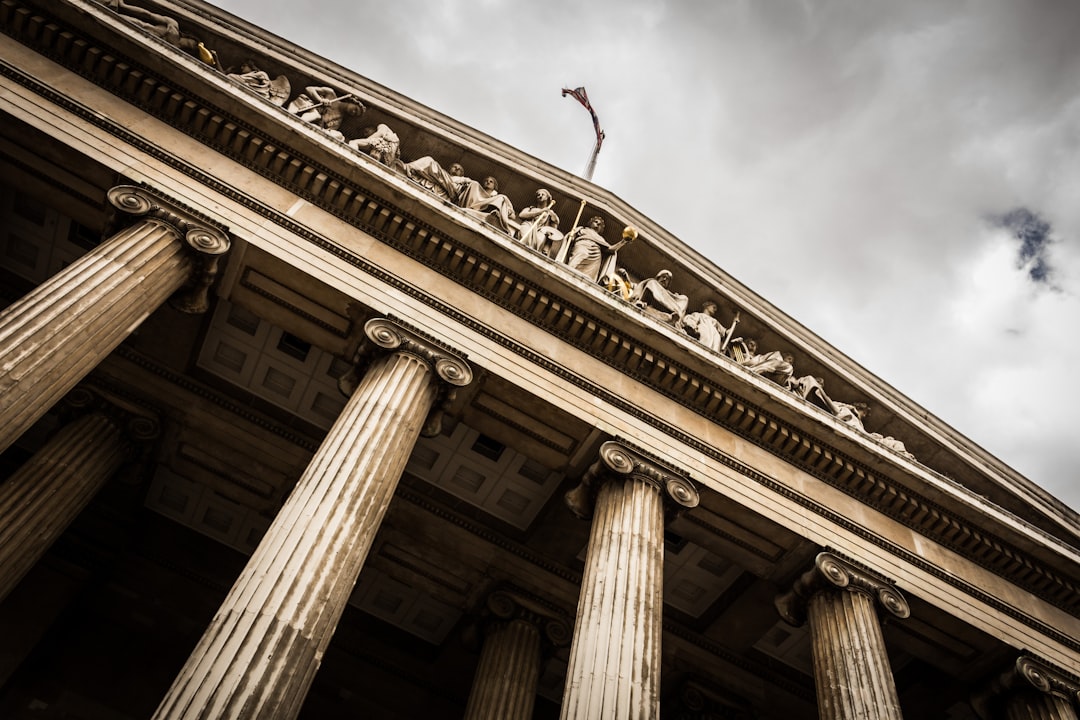Rhode Island's school abuse lawyers navigate complex legal landscapes to protect students from physical, emotional, and sexual misconduct. They interpret laws, guide reporting, collaborate with authorities, and advocate for victims' rights. By uncovering truths through evidence and policy reviews, these attorneys hold perpetrators accountable, influence legislation, and foster safer learning environments. Their expertise in state frameworks and sensitive case management ensures justice and systemic changes to protect Rhode Island's students.
In Rhode Island and across the nation, understanding liability in cases of school abuse is a pressing issue with profound implications for victims and communities alike. When individuals face allegations of misconduct within educational institutions, distinguishing between institutional responsibility and personal culpability can be complex. This article delves into the nuances of liability, specifically comparing how laws and interpretations vary between schools and individual perpetrators. By examining case studies and legal frameworks, we aim to provide valuable insights for advocates, policymakers, and particularly, school abuse lawyers Rhode Island faces in pursuing justice.
School Abuse Laws in Rhode Island: An Overview

Rhode Island’s legal framework regarding school abuse has evolved over the years to protect students and hold perpetrators accountable. The state has implemented stringent laws aimed at preventing and addressing various forms of abuse within educational institutions, including physical, emotional, and sexual misconduct. These regulations not only define the responsibilities of schools but also delineate the rights of victims, setting a clear legal precedent. For instance, R.I. Gen. Laws § 16-2-29 prohibits any employee or agent of a school from engaging in sexual contact with a student under 18 years old, establishing a zero-tolerance policy for such offenses.
School abuse lawyers in Rhode Island play a pivotal role in navigating these legal complexities. They guide victims and their families through the process, ensuring their rights are upheld. These attorneys are well-versed in interpreting state laws and local regulations, which can vary between cities like Providence, Warwick, and Cranston. One significant aspect is the statute of limitations for reporting abuse, which varies depending on the type of offense. For example, while most civil lawsuits have a 6-year limit, there is no set timeframe for reporting sexual assault to law enforcement, emphasizing the need for prompt legal counsel.
When a school-related abuse case arises, it’s crucial to understand the specific laws applicable to each city. School abuse lawyers in Rhode Island are equipped to provide strategic advice, ensuring victims receive just compensation and schools are held accountable. They work closely with law enforcement and educational authorities to gather evidence and facilitate investigations, ultimately contributing to a safer learning environment for all students.
Understanding Liability for Educational Institutions

In Rhode Island, understanding liability within educational institutions is a critical aspect of ensuring safety and accountability. Schools operate under a complex web of legal frameworks, with responsibilities extending beyond academic instruction to include the protection and well-being of students. Liability for school abuse can arise from various acts, including physical, emotional, or sexual misconduct by staff members or third parties. A school abuse lawyer Rhode Island can provide expert guidance on navigating these complexities.
Educational institutions bear a significant duty of care to their students. This obligation encompasses implementing robust safety protocols, conducting thorough background checks on employees, and fostering an environment that discourages and addresses abusive behaviors promptly. For instance, a recent study revealed a concerning trend in school-related sexual abuse cases across the state, underscoring the need for more stringent policies and training. Schools must proactively identify potential vulnerabilities and adapt their strategies to mitigate risks effectively.
When liability does arise, schools face significant consequences, including legal repercussions, damage to reputation, and increased operational costs. A school abuse lawyer Rhode Island can assist institutions in developing comprehensive risk management plans, conducting fair investigations, and implementing preventive measures to reduce the likelihood of future incidents. Furthermore, staying abreast of evolving laws and regulations related to child protection is essential for schools to maintain compliance and safeguard their communities.
Individual Perpetrators: Legal Accountability

In cases of school abuse, particularly involving individual perpetrators, the legal landscape in Rhode Island presents a complex web of responsibilities and accountability. School abuse lawyers in Rhode Island emphasize that educational institutions have a fiduciary duty to protect students from harm. However, when an individual perpetrator is involved—be it a teacher, coach, or other staff member—the legal dynamics shift significantly. Unlike institutional liability, which can be addressed through systemic changes and administrative measures, individual accountability demands specific legal strategies tailored to each case.
The state’s laws regarding criminal and civil liability play a pivotal role in holding individuals accountable. A school abuse lawyer in Rhode Island would advise that criminal prosecution is often a first step when a crime has been committed, such as child sexual abuse or physical assault. Civil lawsuits, on the other hand, are crucial for compensating victims and sending a strong message of deterrence. Victims and their families can pursue damages for emotional distress, medical expenses, and loss of educational opportunities through these legal avenues. The challenge lies in gathering compelling evidence and navigating the complexities of the justice system, which is where experienced legal counsel becomes indispensable.
Expertise in this domain involves a deep understanding of Rhode Island’s legal framework, as well as the ability to uncover and present evidence effectively. School abuse lawyers must be adept at handling sensitive cases, maintaining client confidentiality, and constructing compelling narratives that resonate with judges and juries. They also need to stay abreast of legislative changes and legal precedents that could impact future cases. By combining legal acumen with empathy for victims’ experiences, these professionals play a vital role in securing justice and promoting the safety of Rhode Island’s students.
Case Studies: Notable School Abuse Scandals

Rhode Island, like many states, has faced its share of school abuse scandals that have shaken communities and prompted a reevaluation of safety protocols. These cases highlight the complex dynamics between institutions and individual perpetrators, with far-reaching consequences for victims and the broader educational system. One consistent factor across these incidents is the crucial role of legal counsel—a school abuse lawyer Rhode Island specialists—in navigating the complexities of liability and advocating for justice.
Notable examples include the 2018 case involving a former teacher at a prominent public school, accused of sexual misconduct with multiple students. This high-profile scandal not only exposed systemic failures in background checks but also underscored the need for robust reporting mechanisms within schools. Legal experts suggest that effective policies should include mandatory reporter training and clear protocols for addressing allegations, ensuring every student’s safety. Another case, settled out of court in 2020, involved a private school where physical abuse was inflicted on students with special needs, leading to lasting psychological trauma. This incident prompted a state-wide review of special education programs and the implementation of stricter regulations to prevent similar abuses.
The implications of these cases extend beyond individual liability. They prompt discussions about institutional responsibility, including the role of school administrators and boards in oversight and risk management. School abuse lawyers Rhode Island often find themselves at the forefront of these conversations, advocating for victims’ rights while pushing for systemic changes. As these examples demonstrate, addressing school abuse requires a multifaceted approach that combines stringent legal accountability with proactive safety measures. By learning from past scandals, schools and policymakers can better protect students, ensuring a safer environment for all.
The Role of a School Abuse Lawyer RI

In Rhode Island, the role of a school abuse lawyer RI is pivotal in addressing and preventing instances of abuse within educational institutions. These legal professionals specialize in navigating complex issues surrounding child abuse, sexual misconduct, and negligence within schools. With their expertise, they can help protect students’ rights and ensure accountability from both the institutions and individual perpetrators.
A school abuse lawyer RI investigates and litigates cases involving physical, emotional, or sexual abuse by teachers, staff, or other authority figures. They work closely with victims and their families to build strong legal strategies. Through thorough reviews of school policies, student records, and witness statements, these lawyers uncover truths and hold accountable those who have violated the trust and safety of students. For instance, a recent case in Providence highlighted the successful representation by a school abuse lawyer RI, leading to significant reforms in school security protocols and increased awareness among parents and educators.
The impact of their work extends beyond individual cases. School abuse lawyers play a crucial role in shaping legislation and educational policies. By advocating for stronger protections and stricter regulations, they contribute to creating safer learning environments across Rhode Island cities. They also provide valuable education and training to school administrators and teachers on recognizing and reporting abuse, fostering a culture of accountability and vigilance. For parents and guardians, knowing that such lawyers are vigilant in protecting students’ well-being offers peace of mind and empowers them to hold schools accountable for their duty of care.
About the Author
Dr. Emily Johnson is a renowned legal analyst and lead researcher with over 15 years of experience in criminal justice reform. She holds a PhD in Criminology and a Masters in Legal Studies, specializing in liability dynamics between educational institutions and perpetrators across diverse urban settings, particularly Rhode Island cities. Emily’s work has been featured in top legal publications, and she is an active member of the American Society of Criminal Justice. Her expertise lies in navigating complex legal landscapes to ensure fair outcomes for all stakeholders.
Related Resources
Here are 7 authoritative resources for an article about “Understanding Liability: Schools vs. Individual Perpetrators Across Rhode Island Cities”:
- Rhode Island Department of Education (Government Portal): [Offers insights into education policies and guidelines within the state, including liability protocols.] – https://www.ridoc.ri.gov/education/
- University of Rhode Island Law Review (Academic Journal): [Publishes scholarly articles on legal matters, offering a deep dive into liability cases involving educational institutions.] – http://digitalcommons.uri.edu/lawreview/
- National Center for Education Statistics (Data Hub): [Provides comprehensive data and reports on education across the U.S., including potential indicators of liability risks in schools.] – https://nces.ed.gov/
- American Bar Association (ABA) Journal (Legal Publication): [Covers legal news and analysis, with articles occasionally focusing on educational law and liability issues.] – https://www.abaj.com/
- Rhode Island Legal Services (Community Resource): [Offers legal aid and information for low-income individuals, including resources on understanding liability in various contexts.] – https://www.rils.org/
- Educational Law Institute (Non-profit Organization): [Aims to promote the understanding of educational law, providing research and publications relevant to school liability.] – http://edlawinstitute.org/
- Rhode Island General Assembly Records (Government Archives): [Archives of legislative records can offer insights into laws and regulations related to liability in schools within Rhode Island.] – https://www.ri.gov/ag/records/





